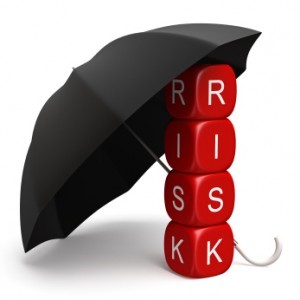“A boss creates fear, a leader confidence. A boss fixes blame, a leader corrects mistakes. A boss knows all, a leader asks questions. A boss makes work drudgery, a leader makes it interesting.” – Russell H. Ewing

I have looked at how successful persons have been noted to take calculated or smart risks to propel their businesses to different levels. Some of these businesses failed but the top person learned from the past mistakes and moved on again to excel next time.
On the other hand, risk managers are often seen as the gatekeepers to decisions and often associated with the word “No.” Over the years the focus of most risk managers has been on the process – identification, analysis and mitigation. Currently, many financial institutions employ a state of the art technology, using advanced analytical techniques, to quantify and scientifically measure the various risks highlighted and to alert management on best strategies to adopt to avert potential losses. While this process-oriented focus is important to successful risk management, there are also some essential characteristics of the risk managers that should be examined critically to make their work more proactive and in sync with the goals of the institution.
Why do many risk managers face so much stiff organizational resistance? What makes these individuals succeed or fail? Why are some risk managers unable to move risk to the top of an organization’s list of priorities?
Aside all the gadgets and indices for determining the risk profile of an institution, a successful risk management project has a lot to do with the characteristics of the risk managers. Let us look at some characteristics of the new breed of risk managers that makes them more effective despite the new challenges in banking.
CHARACTERISTICS OF THE NEW BREED OF EFFECTIVE RISK MANAGERS.
An unquenchable thirst for knowledge.
Obviously a risk manager should be qualified and have all the relevant technical know- how. However we sometimes forget that the world of business is so dynamic that the demands of risk management should also flow with the tide. Let us even examine the dynamics of retail banking. The onset of the e-banking platform has eroded most of the functions of bank tellers. With the replacement of glass cubicles with counters, what new risks are emerging? A risk manager should quickly research on best branch layouts factoring safety measures into the new brand. The risk manager should regularly be abreast with emerging risks in electronic banking and should be ready to recommend proactive solutions to meet this global risk. Risk management is not just saying no, no, but adding possible solutions to the exuberance associated with new projects and services.
Understanding the Role
An effective risk manager must understand his or her role in the bank and how important it is. I usually compare the role of a risk manager to a consultant. What is the bank’s objective? What are its goals? What are its people made up of? How sustainable are its goals and objectives? In some global markets, the risk manager is very powerful and his or her decisions carry a lot of weight even at the board levels. A highly effective risk manager makes decisions taking into consideration, the consequences of those decisions. Apart from the numerous cases of chief executives being fired during bank failures or crises, the risk managers are also not left alone. Where there are state interventions and forensic audits, the questions asked by the legislators include, “Didn’t the risk manager not see the signs on the wall? Did they alert management? What did they do about it? Did they not know they are caretakers of the bank? And so on and so forth…
Ambitious Thinking
A highly effective risk manager thinks ambitiously and challenges the status quo, bearing in mind the organization’s objectives. He or she understands that the past does not predict future results and is willing to think outside the box and go outside of the norm to achieve organizational objectives. When management wishes to undertake a particular project, a risk manager should quickly conduct research around the subject and see the global picture, especially in the worst case scenarios. History is good for referral but as circumstances change, it becomes a guide, like the compass but not the ultimate.
“Flowing with the Tide, with Eyes wide Open”
The general expectation of a risk manager is that the person must be precise, cautious, analytical and slow to act. However a risk manager should also be confident and ambitious enough to “flow with the tide” of management directions so long as adequate probe and research has been conducted and grey areas still kept within the surveillance zone. Sometimes a risk manager should enter the dark tunnel closely with the chief executive, of course with eyes opened even wider, in case there is an unseen obstacle or red flag in their path which he can identify early.
The Bridge Over Troubled Waters
The risk manager must also play a role in building a bridge to other functional and business areas within and outside of the bank. It is only the risk manager who can demand and have access to documentation from all functionaries in the bank, whether for pre-audit or post-audit. The lens of the risk manager can capture several potential hot spots in the bank. The function should not be restricted to a form filling exercise or just analyzing data. Risk managers are horizontal integrators within the bank and develop a bridge across all departments to look at the global picture. In fact, the risk person actually connects all the dots, especially the “outliers” that others do not appreciate.
Rolling up Their Sleeves
A risk manager must understand and analyze interdependencies across the bank. He or she must provide insights into relationships that unit, product, or project managers may not recognize due to their singular emphasis. The risk manager must stay neutral and avoid any biases. The overall picture of the bank should enable risk managers have access to sensitive data to enable them have a third eye which must be used responsibly in providing new insights and learning to the organization. This role requires a risk manager to roll up his or her sleeves and become involved in multiple areas of a program to ensure that the project groups not only know what risk management involves but also actively participate in the process.
Good Communicator
As a risk manager, what language do you use? How well do you blend with all the three levels of defence in risk management? Effective risk managers embed themselves within the organization by being part of the whole. They understand the concerns of the board of directors all the way to the staff on the ground. In this regard, communication to the various levels should be appropriately worded. What makes them effective is that they are clear about and sensitive to the outcome they want to get from their communication and are flexible in their method of communication to achieve their outcome. They are experts at building rapport and separate what is being said from the meaning they put into what is being said.
Life-long Learners –exploring all possibilities
Risk managers should be regular readers. If you believe that success leaves clues and that you can be successful by thinking and acting like a success person, then reading should be a part of your daily life. Reading books that will help you become a true expert in your field of your passion or challenge the limiting beliefs you know about risks.
Dear risk managers, how do you fit into all these? Stay tuned for more next week.
To be continued
ABOUT THE AUTHOR
Alberta Quarcoopome is a Fellow of the Institute of Bankers, and CEO of ALKAN Business Consult Ltd. She is the Author of Three books: “The 21st Century Bank Teller: A Strategic Partner” and “My Front Desk Experience: A Young Banker’s Story” and “The Modern Branch Manager’s Companion”. She uses her experience and practical case studies, training young bankers in operational risk management, sales, customer service, banking operations and fraud.
CONTACT
Website www.alkanbiz.com
Email:alberta@alkanbiz.com or [email protected]
Tel: +233-0244333051/+233-0244611343










